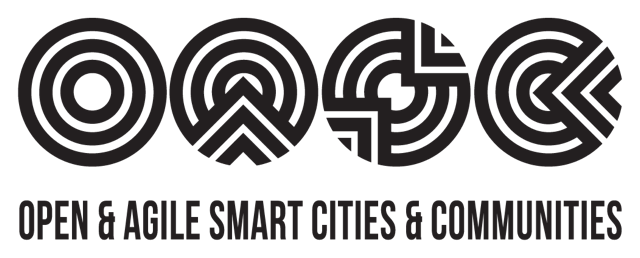But what exactly does this mean?
Many different things contribute to an open market. Among the most important you’ll hear about are common, lightweight standards to enable the market to develop. OASC calls them Minimal Interoperability Mechanism – or MIMs in short.
In practice, these MIMs are a set of common (real-time) APIs to access data, context information to structure data, and a common, but optional, data platform to store and serve data – driven and evolving by implementation. See the full Open & Agile Smart Cities Background Document and the SynchroniCity Framework, which is based on OASC principles, for more detail.
Looking beyond ‘boring standards’
Standards are, in their simplest form, agreements on a set way of doing things. What makes them powerful is that they are established through consensus with inputs from the most relevant minds in the sector.
As smart city practitioners, we face a challenge in effectively communicating the benefits of standardisation – not mention getting them adopted – to the people who make decisions; people who are usually not ‘techies’ and who often have many competing priorities. Take a typical city CEO, for example: urban planning, social care and bin collection are most likely to be higher up on the priority list, no matter how strongly they may be committed to digital innovation.
I’ve found it helpful to talk about the value of standardisation using three key terms.
- Consistency
The term ‘standard’ makes people uneasy, as it sounds like something rigid and prescriptive. In reality, when we talk about standards for cities, we are usually talking about achieving greater consistency in processes such as how data is recorded and managed, or how machines communicate with one another. Consistency is important because it creates certainty. If you’re a private company, and you know that every city has organised and published its transport, or health data in a consistent way, then it opens up new possibilities on a global scale for what you can do with it.
- Confidence
Part of the reason the smart city market for data and services remains in its infancy is because bespoke solutions are often developed for the needs of individual cities. Even when various cities experience those exact same needs. City administrations need to spend public money with confidence, and this confidence is usually provided by an established supplier relationship, or by a product that is proven to work effectively in other places.
Consistent approaches to digital services establish certainty. Cities take confidence from a standard, in the knowledge that a supplier using it has developed a product that can be trusted. This opens up the market to new entrants by de-risking investments in products and services, with cities able to look beyond just the tried and tested solutions.
- Scalability
So on the one hand, cities can procure digital solutions with confidence, and on the other businesses of all sizes can develop and innovate their products. They do this knowing that a market exists for them to scale their services to other cities that have embraced the standard.
With a more level playing field for cities and vendors, competition will increase and interest in the market will grow. I’m excited to see how SynchroniCity, a European Large Scale Pilot (LSP) funded under Horizon 2020, progresses in catalysing the digital single market for smart city solutions in Europe and potentially the whole world. The project features eight OASC member cities, and has launched an open call to develop smart city solutions based on a consistent set of standards. The open call is for SMEs, cities and corporates – and with € 3 million available this is a great opportunity for standards-driven smart city innovation.
About the author

Matt Wood-Hill has been working within the OASC network in the field of smart city strategy, standards and local government service transformation. Find him on LinkedIn or Twitter @futureofmatt

